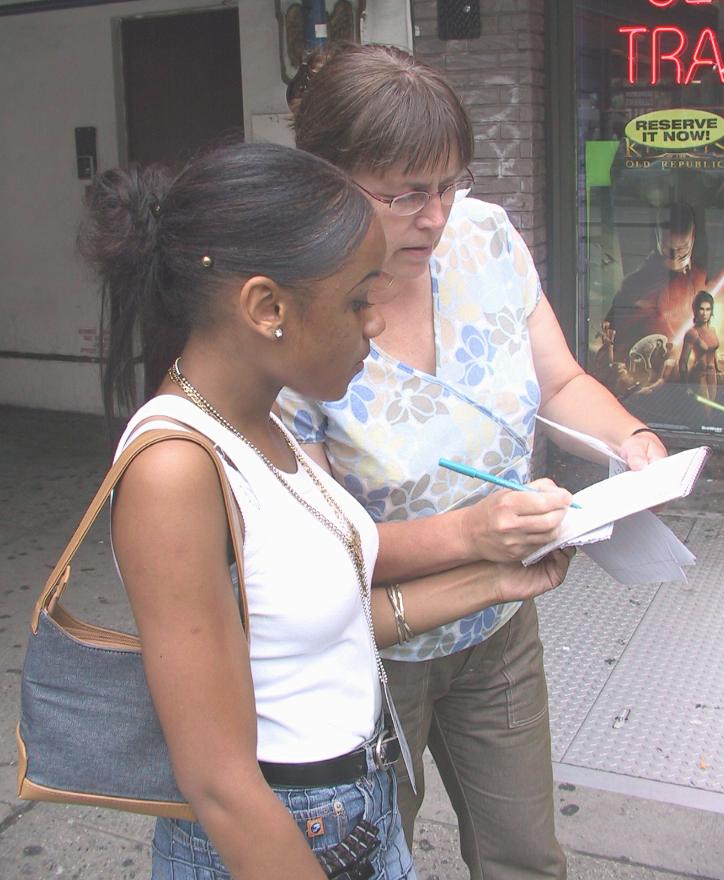|
 A
recent scandal that has surfaced as a result of a so-called
“hooky party” at a middle schools has raised
several questions in regards to civil liberties and confidentiality
issues. A
recent scandal that has surfaced as a result of a so-called
“hooky party” at a middle schools has raised
several questions in regards to civil liberties and confidentiality
issues.
In mid- April of this past school year, several students
at I.S. 164 did not attend school and instead engaged
in other activities that officials at the school believe
to have involved alcohol and sex. Instead of taking standard
procedures to deal with the students who attended this
party such as detention, school administrators demanded
that the female students who attended this party take
pregnancy tests as well as an STD and HIV test. More over,
the school demanded that the girls provided a doctors
note with information about the results of their tests.
The students said that if they did not comply with the
schools demands they could not return to school.
This issue has caught the eye of many, one of whom was
the New York Civil Liberties Union. They claim that there
was an infringement on the girls’ basic constitutional
rights to privacy, equality, and due process on the part
of the school officials. The controversy lies in the fact
that the school failed to respect the confidentiality
rights provided for by the constitution. Forcing the girls
to not only take these medical examinations, but also
provide the results is a clear violation of their right
to privacy. The girls were also denied equality because
they believe they were victims of sexual bias. The lawyers
for the girls believe that the male student who took part
in the “hooky party” was not asked to take
tests for sexually transmitted diseases. Aside from that,
the girls who were forced to get tested faced yet another
form of discrimination. As word spread around the school,
the girls became stigmatized. One girl was quoted as saying
that she became “ the center of attention all of
the sudden”.
In simplest terms, the girls were being punished for activities
that may or may not have taken place. Even still, as the
girls’ lawyer stated, the school’s actions
were not justified because the students were off school
grounds when the alleged events occurred.
Many feel that the course of action taken by the school
overstepped several boundaries. As
Donna Lieberman, the executive director of the New York
Civil Liberties Union, stated in a New York Times article,
this controversy “is part of a pattern of the school
system taking a fundamentally misguided approach to teenage
girls and their health.” She went on to say, “
… the school administrators assumed they could keep
students out of school based on the results of the tests.
That is clearly illegal.”
 When word of this issue reached Harlem Live we decided
to take it to the streets and ask YOU, the people, what
you thought about the circumstances surrounding the last
suit filed in the Federal District of Manhattan on July
8, 2003. We received a wide range of intelligent opinions
regarding this issue. A Crisis Counselor named Dennis
for example, believes that the school was wrong in its
demands for testing of the females and he also stated
that because schools must follow a policy of mandatory
reporting, in which they need to report certain things
to the state, the confidentiality and privacy of the female
students would be violated further. Dennis also commented
on the fact that school records are too easily accessed.
When word of this issue reached Harlem Live we decided
to take it to the streets and ask YOU, the people, what
you thought about the circumstances surrounding the last
suit filed in the Federal District of Manhattan on July
8, 2003. We received a wide range of intelligent opinions
regarding this issue. A Crisis Counselor named Dennis
for example, believes that the school was wrong in its
demands for testing of the females and he also stated
that because schools must follow a policy of mandatory
reporting, in which they need to report certain things
to the state, the confidentiality and privacy of the female
students would be violated further. Dennis also commented
on the fact that school records are too easily accessed.
Through out our interviews we found that people young
and old felt the same about the issue. A tech-supporter
named LaRoyce, age 21, strongly felt that because the
events that may or may not have occurred during the “hooky
party” not occur on school ground the school should
not have gotten involved. One woman who we interviewed
named Denizee, a retired resident of Long Island, felt
that the school had good intentions however, they should’ve
dealt with them in a different manner.
Young or old, most everyone disagreed with the schools
actions and felt that a lawsuit was the proper way to
address the situation. Personally, I agree with the majority.
School officials had good intentions, however, the approached
them in an illegal way. It is understandable to question
what the girls were exposed to during the “hooky
party” especially if alcohol and or sex was involved,
given the young age of the girls. However, that is a matter
to be discussed and dealt with accordingly by the parents
of the students.
|